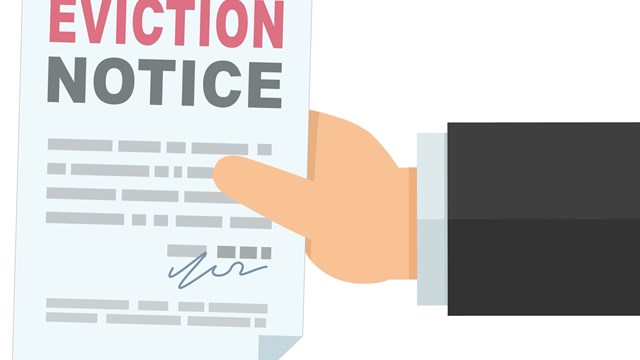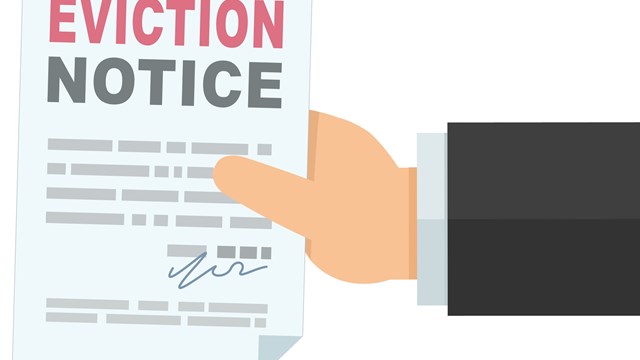
In today’s booming real estate market everyone is looking to turn a profit. Should co-op shareholders be any different? Everyone wants a piece of the pie but at what cost? Subletting cooperative apartments can be very simple if you follow the guidelines that the co-op’s bylaws have put in place, but it seems as if it’s not that simple. Are shareholders taking advantage by manufacturing family members to make money, or are the cooperative corporations making their shareholders jump through too many hoops?
Smuggling in Sublets
There are several reasons why co-op owners choose to sublet with or without the board’s consent. Families deciding to relocate, retire, or buy an additional home are only some of the reasons. Many probably look at their co-op unit as a good investment and a tool to make money. Some may see it as a safe haven for family members in need of housing. Problems arise when shareholders move people into their apartments without the knowledge or approval of the co-op’s board.
Now why would shareholders admit an illegal sublet? One reason is because they want to avoid going through the board for approval. There are often application fees and credit and background checks done on the proposed tenant. These fees fall on the shareholder. This process of approving someone may take several weeks and some shareholders may not want to wait.
There is also the chance that the board may not find the proposed tenant acceptable. That leaves the shareholder seeking another tenant and out the money they provided for fees. Then they have to repeat the process until the board approves someone.
There are other charges in addition to application fees. "Sometimes there’s a surcharge on the maintenance," explains Eric Goidel, a partner at Borah, Goldstein, Altschuler & Schwartz, a law firm with offices in Manhattan and Forest Hills. He says although it is not typical, charges can be as high as 50 percent of the maintenance on the unit.
Many co-ops find their shareholders misrepresenting the status of their sublets; often trying to pass sublets off as relatives. Most proprietary leases have provisions which allow relatives to reside in the shareholder’s apartment and this is how they try to get around introducing their tenants as a sublet. Once the person(s) begins living in the unit, however, it is the burden of the shareholder to prove the sublet’s relationship to the board. Not surprisingly, this often presents a problem for the shareholder.
Goidel recalls a situation where a primary tenant presented the board with a fraudulent birth certificate to verify his relationship to his house guest. The shareholder had to get rid of his illegal tenant. In cases like this, the shareholder could stand to lose the apartment for deceiving the board and violating its subletting rules. Another penalty might be revoking their right to sublet in the future.
In some instances Goidel says that the board may give the tenant the opportunity to "legalize" the sublet. They may elect to have the shareholder pay the back fees and let the tenant remain. However, Goidel believes this is a bad policy. It provides shareholders with no incentive to comply with the boards rules. "If you get caught (illegally subletting)," he says, "this person has to go."
The Co-op’s Perspective
In defense of the cooperative corporation, it must be noted that it is generally in the best interest of the co-op for its shareholders to reside in their apartments and not sublet for any significant amount of time. This enhances the quality of life for the residents and elevates the co-op’s worth. "The very heart of cooperative ownership is the apartment corporation’s ability to restrict the use and occupancy of the apartment," states Edward T. Braverman, senior partner at Braverman and Associates, a law firm in Manhattan. "This restriction of use is what makes the co-op units so valuable. If use isn’t restricted, practically anyone would be able to move in. The purpose of the board is to choose as shareholders people who will compliment the existing tenants and the corporation."
In order to avoid problems with subletting, co-ops should draw-up detailed proprietary leases which specifically address subletting regulations. By doing this, the co-op has some recourse when their policies are not followed.
It is also important that the term "family" be clarified. According to Braverman, it is often unclear who constitutes family, and whether the primary tenant has to be residing in the apartment with other relatives simultaneously.
In serious matters, C. Jaye Berger of the Law Offices of C. Jaye Berger in Manhattan believes co-op’s should "authorize attorneys to do what’s needed." She believes this means sending the shareholder and other principals proper notices in a timely fashion and employing investigators when necessary. She believes acting on the matter promptly is best.
The Lender’s Role
Co-op loans are issued with the assumption that the borrower intends to live in the apartment, not sublet. It is probable that if the borrower had applied for the loan with the intention of subletting, his interest rate for the loan would have been higher. In most contracts issued by the lender they require notification when the borrower decides to sublet his unit. "The lender must approve the transaction", says Goidel.
A shareholder in a Manhattan co-op went as far as marrying a man 30 years her junior just so she could avoid going through having him approved as a sublet, recalls Barry Mallin, an attorney with Mallin & Goldstein in Manhattan. The groom was also rumored to be homosexual. In any case, he moved in as a spouse, not a sublet. Although drastic, that was one way to avoid fees and board approval!
Berger recommends cooperative corporations act immediately when they suspect a shareholder is subletting without board approval. "Too often buildings let things linger," Berger says. "When co-ops let inappropriate situations lag, they set a terrible precedent. They are giving the other shareholders ammunition to use against them if a similar situation should arise."
A Case to Study
"It’s a battle to prove illegal subletting," says Katherine Georg, a property manager with Insignia Realty based in Manhattan. She is currently dealing with a co-op who has the burden of proving that one of their units is being illegally sublet. In this particular building, subletting is strictly prohibited. The co-op believes that the shareholder is living in Florida while her grandson resides in her apartment. The tenant claims that she lives there with her grandson but the board feels otherwise. She wishes to continue her ownership.Her maintenance fees are probably lower than any rental her grandson could find in New York.
The board has been advised to hire a private investigator to uncover the tenants true residence but hasn’t decided whether they will do that or not. It could prove costly to the co-op if they begin to routinely hire investigators to verify tenants claims.
Unfortunately, even when the proper steps are taken, a swift and just resolution to a situation is not always ensured. Goidel says when disputes have to be resolved by taking legal action, it is not uncommon to wait two to three months to get a court date.
The bottom line: subletting policies should become more detailed. Updating procedures to include specifics will help to provide more clarity so that the interests of all parties involved will be protected.
Shannon Terrell-Ernest is a freelance writer living in Queens.









15 Comments
Leave a Comment